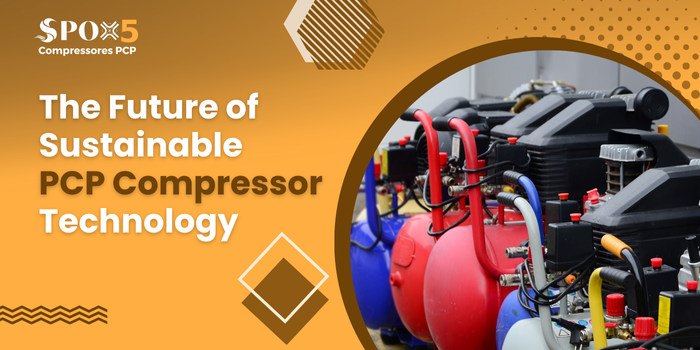PCP (Progressing Cavity Pump) compressors have become indispensable in various industries due to their versatility and efficiency. As the world increasingly focuses on sustainability, the future of PCP compressor technology is poised for significant advancements. Here’s a look at some key trends and innovations shaping the sustainable future of PCP compressors.
Energy Efficiency: The Cornerstone of Sustainability
- Variable Speed Drives (VSDs): VSDs allow PCP compressors to adjust their speed based on demand, reducing energy consumption during periods of low flow.
- Improved Efficiency: Ongoing research and development are leading to more efficient PCP compressor designs, minimizing energy losses.
- Regenerative Braking: Some PCP compressors are being equipped with regenerative braking systems that can recover energy during deceleration and feed it back into the electrical grid.
Materials Innovation: Reducing Environmental Impact
- Biodegradable Materials: Exploring the use of biodegradable materials in PCP compressors can reduce their environmental footprint.
- Recyclable Components: Designing components that can be easily recycled or reused contributes to a circular economy.
- Lightweight Materials: Using lighter materials can reduce the overall weight of PCP compressors, leading to lower energy consumption and improved efficiency.
Digitalization and Smart Technology
- IoT Integration: Integrating PCP compressors with the Internet of Things (IoT) can enable remote monitoring, predictive maintenance, and energy optimization.
- Data Analytics: Analyzing data collected from IoT-enabled compressors can help identify areas for improvement and optimize performance.
- AI-Driven Optimization: Artificial intelligence can be used to optimize compressor operation based on real-time data and changing conditions.
Customization and Modular Design
- Tailored Solutions: PCP compressors are becoming increasingly customizable to meet specific industry and application needs.
- Modular Design: Modular components can facilitate easier maintenance, upgrades, and customization.
Addressing Sustainability Challenges
- Noise Reduction: Innovative noise reduction techniques are being developed to minimize the environmental impact of PCP compressors, especially in residential areas.
- Vibration Control: Reducing vibrations through improved design and isolation techniques can enhance the sustainability of PCP compressors.
- Heat Management: Efficient heat management systems can help reduce energy consumption and minimize the impact on surrounding environments.
Case Studies: Successful Sustainable Implementations
- Industry Examples: Highlight real-world examples of companies that have successfully implemented sustainable PCP compressor technology, showcasing the benefits and results achieved.
- Environmental Impact Assessments: Discuss how these implementations have contributed to reduced energy consumption, lower emissions, and improved sustainability.
Future Outlook: A Promising Path
The future of PCP compressor technology is bright. SPOX5 PCP With a focus on energy efficiency, sustainable materials, digitalization, and customization, PCP compressors are poised to play a crucial role in a more sustainable future. By embracing these advancements, industries can leverage the benefits of PCP technology while minimizing their environmental impact.
As technology continues to evolve, we can expect to see even more innovative and sustainable PCP compressor solutions emerging. By staying informed about the latest developments, businesses can make informed decisions and position themselves at the forefront of sustainable practices.

